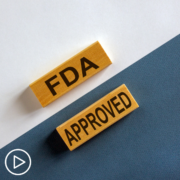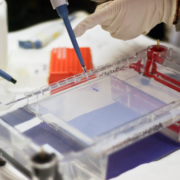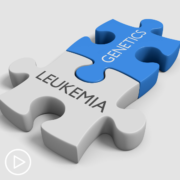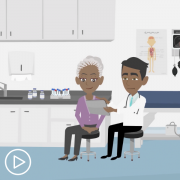Myeloma Treatment Timing: Prior Therapies and FDA Approval Rationale
Myeloma Treatment Timing: Prior Therapies and FDA Approval Rationale from Patient Empowerment Network on Vimeo.
What concerns do myeloma patients need to know about CAR T-cell therapy? Expert Dr. Sikander Ailawadhi from Mayo Clinic explains patient qualification for CAR T-cell therapy, including the number and type of prior therapies.
Download Guide | Descargar Guía
See More from START HERE Myeloma
Related Programs:

|

|

|
Transcript:
Lisa Hatfield:
So we have another patient asking, “Do myeloma patients require multiple prior therapies prior to being eligible for CAR T?” And what’s the rationale for not implementing CAR T immediately, which probably has to do with FDA approval based on clinical trials at this point?
Dr. Sikander Ailawadhi:
So any drug, let alone CAR T, any drug can only be given in the situation that it is approved by the FDA. So basically in accordance with that drug’s FDA approval label. Currently, CAR T-cell therapy is approved in the U.S. after at least four prior lines of therapy. And the patient must have had treatment with at least one proteasome inhibitor, for which we have three drugs, bortezomib (Velcade), ixazomib (Ninlaro), and carfilzomib. They must have been treated with at least one prior immunomodulatory drug; lenalidomide (Revlimid), thalidomide (Thalomid), pomalidomide.
And they must have been previously treated by at least one monoclonal antibody, daratumumab (Darzalex) or Isatuximab (Sarclisa). Once the patient has had all these criteria met, they’ve become a candidate for CAR T-cell therapy. Frankly, we cannot just use a drug anywhere because we cannot use a drug where it has not shown to be of benefit. And importantly, it has not shown to be of any risk. So CAR T-cell therapy in the first line setting is being studied in clinical trials, but is not FDA-approved. Currently approved only after four prior lines, but the FDA is reviewing data for both the CAR Ts to see if they may be available sooner. As of right now, that approval is still pending.
Lisa Hatfield:
Okay, thank you. We’re hopeful that that will happen soon.
Dr. Sikander Ailawadhi:
Hopeful.
Lisa Hatfield:
Yeah. So an interesting question from a patient, “Does CAR-T therapy actually change one’s DNA?”
Dr. Sikander Ailawadhi:
No. The CAR T therapy does not change one’s DNA. What happens is, there are T cells taken out of a patient. The DNA of those T cells is modified and then those T cells are given back to the patient. Those T cells do not go and integrate into your other healthy body cells or your stem cells, et cetera. Those T cells, it’s almost like giving a boost of immunity, which is targeted against your myeloma. So those T cells go in and they fill those myeloma cells.
Now we hope that those T cells perpetuate and teach or create some memory T cells and that immunity lasts a little bit longer. But all of that genetic modification stays within the T cells. It does not integrate anywhere else. Now, I know there was a previous question about T-cell lymphomas, that is related to this question in a way because the risk that is theoretical is, that that genetic modification in the T cells might make those T cells replicate uncontrollably leading to a T-cell cancer or T-cell lymphoma. But I’m saying that this is theoretical because while it is possible, it happens extremely rarely and even in the cases where the cancer happened, it has been seen that the cancer may not come from that portion of the DNA that was…that’s where the modification was done. So, low risk.










